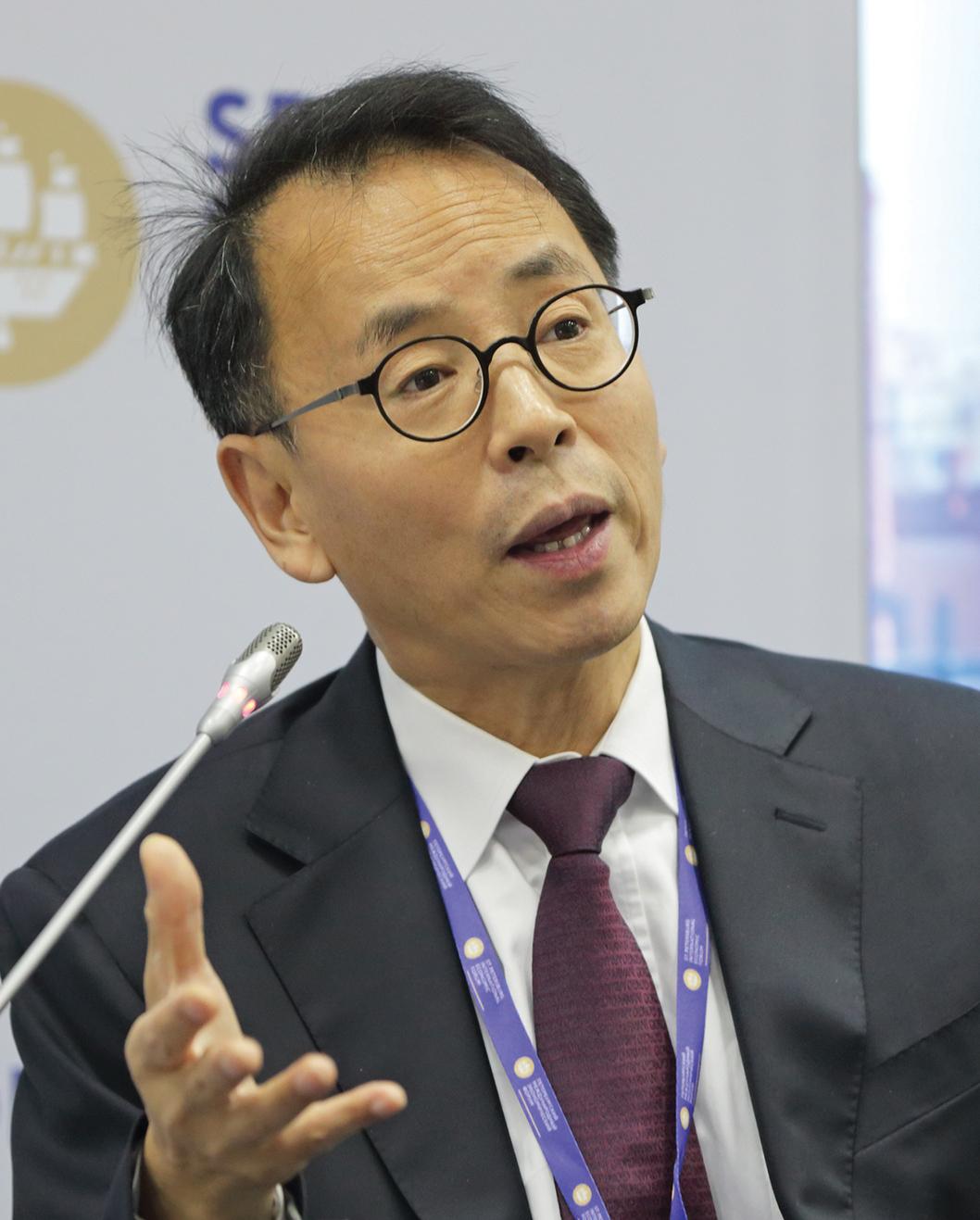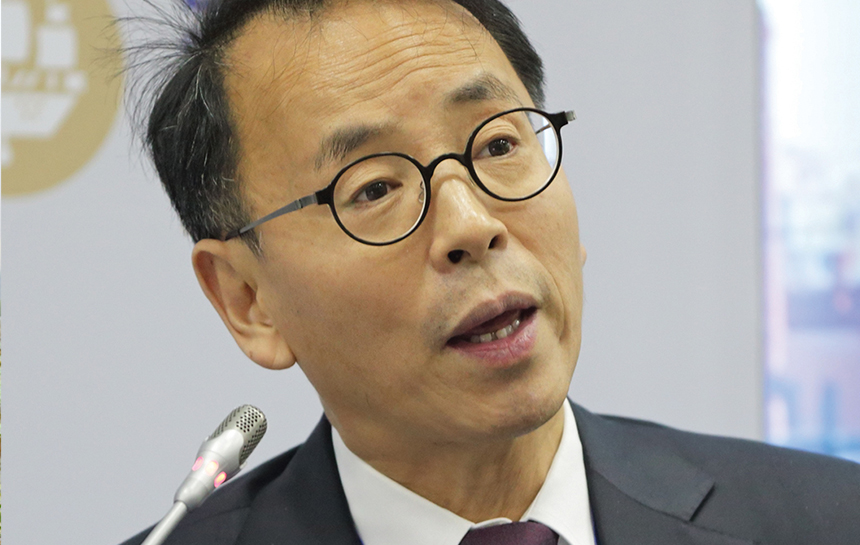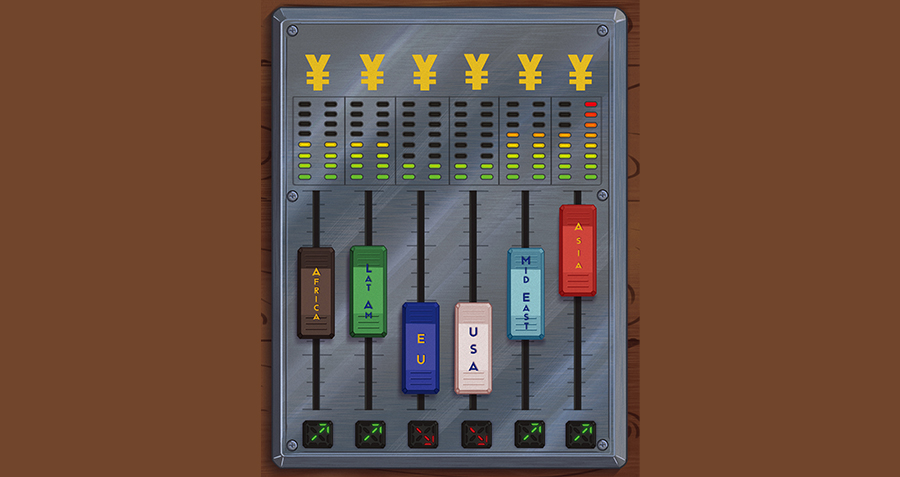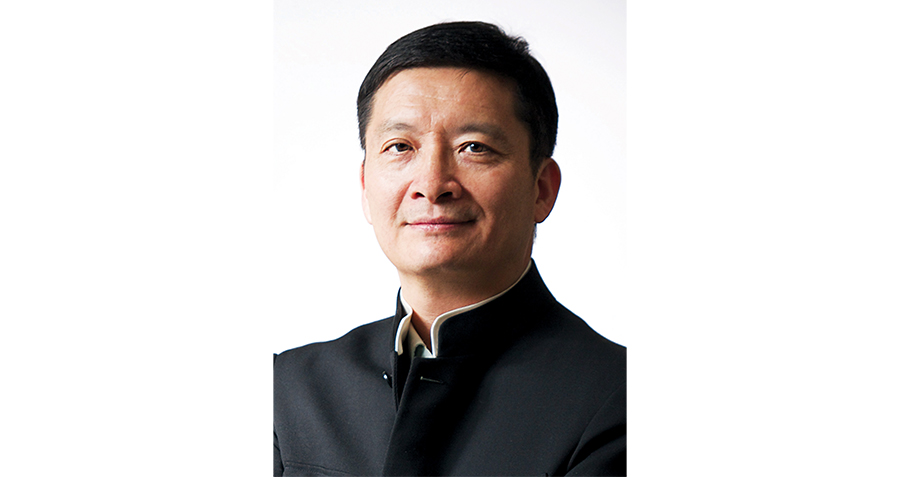 Andy Xie, former Morgan Stanley Director and Chief Asia-Pacific Economist, predicts what the future of US-China relations hold
Andy Xie, former Morgan Stanley Director and Chief Asia-Pacific Economist, predicts what the future of US-China relations hold
Andy Xie is a renowned independent economist based in Shanghai, specializing in China and Asia. He is the former Morgan Stanley Managing director and Chief Asia-Pacific Economist, and currently Director of Rosetta Stone Advisors. In 2013, Bloomberg named him as “one of the 50 most influential persons in global finance.”
Xie is renowned for provocative views on the Chinese economy and a formidable accuracy rate in his predictions. Prior to joining Morgan Stanley, he had spent five years as an economist with the World Bank. In this interview, Xie discusses issues including China’s role in the global financial system and the future trajectory of US-China relations.
What is your view on the state of China’s economy and how do you see it progressing in the short- to medium-term?
China’s economy is stable as COVID-19 has been brought under control domestically. The pandemic’s impact on the service sector is not now as dramatic as it was. Other countries, however, are in trouble and cannot get production going, so China being the “Factory of the World” is working out for them at this time. China is benefiting from the pandemic in a way.
On the other hand, we see headwinds. The first is the affect that the pandemic had on incomes. The government did not hand out helicopter money like other countries. Many businesses suffered, and personal income levels suffered. That negative effect is not reflected in statistics. White collar workers make a significant amount of their income from bonuses and benefits, but those have since disappeared. We are seeing the effect of this on consumption, especially white-collar consumption, such as in expenditure on clothing, coffee and restaurants. Blue-collar income seems to be holding up because we have a labor shortage in that sector. But overall, consumption is not doing well. It is stable, but not driving the economy.
Another point: 20% of China’s gross domestic product (GDP) is infrastructure. It is questionable how sustainable that is, but it is holding up. In the property market, sales are not holding up despite the propaganda. In terms of investment, its mainly government driven. Those three parts of the economy—exports, infrastructure and property—make up half of GDP. The other half is not doing well but is where we are at present.
The topic of the moment is the Dual-Circulation policy to place less emphasis on external economic activity and more on domestic activity. What is your opinion on the policy and what do you think its prospects are?
A. Dual Circulation is another way of promoting consumption and that idea has been around for about 20 years. Hu Jintao, the former leader of China, was promoting it in 2007 when he talked about capital income. The government then stoked a stock market bubble as it was seen as the way to make people rich so that they could spend money. Afterward there was this property bubble, which was essentially the same idea, but it worked in the opposite direction.
So, the Dual Circulation policy is just another idea to promote consumption, but it doesn’t work because the Chinese consumption problem is driven by income distribution. Personal disposable income is 43% of GDP. On the other side you could look at property sales in the last few years, which is 17% of GDP. Property sales are driven by the fear factor of, ‘If you don’t buy now, you won’t be able to afford it in the future and will not have a place to live.’ That’s how the whole thing works. So, if you look at the 43% and compare it to the 17%, you realize that is why the housing sector’s been accumulating significant debt.
Exports are doing well, but headwinds internationally may mean that will be difficult to maintain. What would be your assessment?
China is hunkering down for stagnation. The old story of focusing on growth is gone. The political agenda is now stability, and that is based on two things: One, that the people do not starve and, two, that everybody is under control. Resources are being put in to increase social control. That is the priority now, not growth.
The most critical thing for the government is ensuring food security, that’s why they are cracking down on waste. Pork has also become less available because of surging prices. So again it comes down to the Chinese way of efficiency—food efficiency. The Chinese government is immensely powerful, they can change the prices to make you eat something that fits the agenda for food security, such as more chicken and less pork.
What do you see as the trajectory of China-US relations in the next two to three years?
The rivalry is a long-term change, with many elements at play—ideological, political and power. It is impossible for us to go back to the way things were, the rivalry is here to stay and it will define this century.
In my view Biden is not a decisive person and lacks historical vision. He does not fully understand what’s going on between China and the US. Obama and the last few US presidents didn’t fully understand the history and ideology behind the relationship either. Trump was more focused on the power struggle between the two nations but didn’t understand how to diffuse the situation. He rocked the boat to vent his frustration. Biden is clearly not interested in adopting an aggressive tactic. He says he wants to work with allies to find a solution, but that really means procrastination and further delay in dealing with the root of the problem.
The relationship will eventually cool down on the surface. Many people have been against trade war tariffs, so it’s likely those will be rolled back. In the technology sector, however, they will stay, because that is not just up to the president. Defense and intelligence teams will watch the situation closely. There will be selective sanctions against Chinese companies that use global technology supply chains to make products that endanger information security. That means Chinese companies will be cut off from advanced chips. But Western companies manufacturing products in China, like Apple, will continue to have access to those chips. This will push China back to being the Factory of the World of ten years ago, before the rise of companies like Huawei and Xiaomi. A significant piece of China’s economy will be disconnected from the global system as a result.
What do you see as the prospects for China-listed companies in the US and other markets around the world?
It will very much be gone. There will also be a tightening of scrutiny in terms of accounting standards. It will end up being too troublesome for Chinese companies to get listed in the US. Additionally, the US is a deficit country and China is a surplus country. Why are companies going there for capital? In the future, the relationship will be defined by reciprocity. If Chinese companies can list in the US, then US companies should be able to list in China.
The equity market has never been important in China because most companies are private companies but are still kept on a short leash by the government. An equity market does not function well in this kind of environment. China has a government-controlled banking system, and the government counts money in terms of the overall economy, they don’t consider the health of individual companies. These companies serve a political purpose too. Companies have to listen to the Party, they cannot solely follow the call of profit.
What is your view on the US dollar and its dominance? China’s is clearly trying to create a digital currency alternative to the US dollar. What would you view as the likely prospects?
If China really wants to do that, then that is what they will do. But that goal falls, of course, under their political agenda as well because China does not allow free capital flows. The entire system is very centralized, so you cannot have a currency that flows freely globally. That is why the US dollar, despite the US government abusing the dollar in unimaginable ways, is still holding up.
China is set to emerge as the largest economy in the world, but it has a huge deformity in that it cannot have its own free financial system. It can only latch on to another existing financial system. To have a proper financial system you must allow real ownership, which is something that the government does not allow. When money flows around the world, you must be able to buy real assets. China does not have any real assets. Even property is sold under usage rights, which is very odd. I do not see a way of breaking out of this trap, so the status quo will continue.
What will the fundamental structure of the Chinese economy look like in the future, particularly the balance between the state and private sectors?
Things are leaning toward the government with even private companies now under tight control. I’m not sure if they’re even really private companies anymore. We are in a situation where there are Chinese people living like tycoons and talking to international media, when in reality they’re not real tycoons. Whatever they do, they need to get government approval first.
What are the implications of that for the private sector?
The private sector plays a supportive role in terms of employment. Coffee shops, flower shops, hair salons—these are the kinds of businesses that the government likes, because they contribute to the agenda of the state. They are small, unimportant and never amount to anything. They are just a solution and they never challenge the government, which is something that they like.
If it is a big technology company, that totally different. China has this model where big companies can make piles of money with government support, and they can have a good time with it unless someone at the top tells them to stop. These people know that they really work for the government and so are always trying to understand what the government wants from them. It is a weird creature that has risen in China over the last ten years. It is something that would never work in the West because nobody there would want to work for something that isn’t really theirs.
But in China, so many people want to enjoy the ride while it is good. It’s comparable to being a leaseholder. You can be a billionaire for a month or a year, based on your performance.
People say the property market is fundamental to the economy. Prices seem to be so high compared to international prices. What is your prediction for the property market?
The Chinese government has been holding up the market again, using banking systems, and encouraging speculation in tier-two cities, especially because local governments are facing financial trouble.
You get the banks to lend to people who buy properties, then their money goes to local governments to become physical revenue that pays their civil servants. It’s an entirely political process and the Chinese government can play the people so well. If you can get the propaganda machine and the banks going, you can get people worked up about property again, then when the government feels like the fiscal crisis for local governments has eased, you cool it off again. Therefore, the property bubble for the government is a kind of asset. Like a tap, you can turn it on and off. It’s a useful tool. It’s also sustainable because if a lot of people want to sell at the same time, there are policies in place that prevent them from doing so.
With the Made in China 2025 policy in mind, what opportunities are there for foreign companies in the China economy in the next few years?
China is going back to being the Factory of the World, offering cheaper capital, cheaper land and cheaper labor. There’s no other country like China. There’s a combination between how well the government and people work together here and it cannot be replicated elsewhere on such a large scale. India is trying to do the same, but I’ve been speaking to the Indian government for 20 years and they still don’t understand how to make it all work. It’s not possible.
The Chinese government will return to accepting foreign companies, as that’s the only path forward. If we use Apple as an example, local governments are still competing for Apple production. And even if Chinese companies stop making phones, the government would still like other companies to make phones in China. But China will never allow foreign companies like Facebook or Google to operate in China.
Now, China will have to go backward to ten years ago in terms of economic relations. The ambition of Chinese companies will need to be scaled back. China can be the Factory of the World because they are available to multinational companies, but in terms of internal policies, everything is still the same.
How important is China to the global financial system? Is it still a small player still?
It is important. If you look at the corporate profit margin over the last 20 years, it has much to do with China. If you look at the auto industry, for example, many car parts are made in China and exported elsewhere. China exports $2.5 trillion of products each year. If those products were made elsewhere, it would cost three times as much! So, if you look at global profit margins over the years, those margins are largely due to China.
How will China’s role in the global financial system change over the next decade?
China’s financial system will only change when its political system changes. What we are going to see is that China will become slightly bigger over the next ten years but its currency will remain closed. It might also have more offshore financial assets. But other than that, I see no fundamental change.
Another issue is that China’s labor force is contracting. If we look forward, it is going to become even worse. Births last year were only around 15 million. In the 1970s, it was close to 30 million. China’s demographic issues are becoming remarkably similar to those that Japan is facing.

















